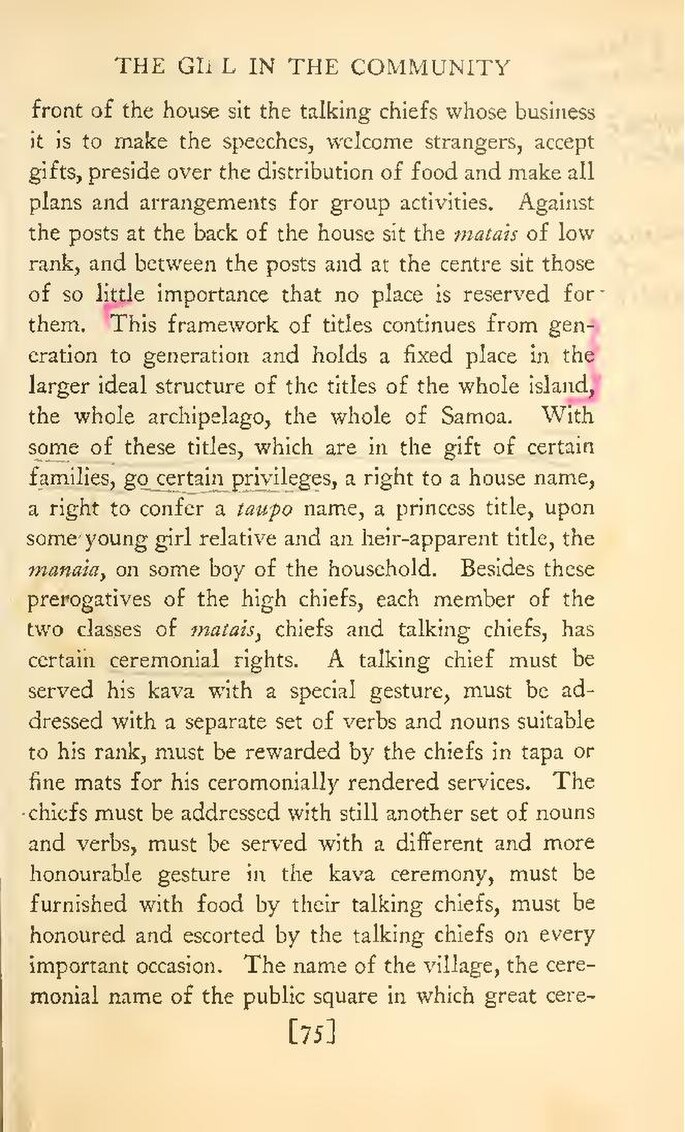THE GIRL IN THE COMMUNITY
front of the house sit the talking chiefs whose business it is to make the speeches, welcome strangers, accept gifts, preside over the distribution of food and make all plans and arrangements for group activities. Against the posts at the back of the house sit the matais of low rank, and between the posts and at the centre sit those of so little importance that no place is reserved for them. This framework of titles continues from generation to generation and holds a fixed place in the larger ideal structure of the titles of the whole island, the whole archipelago, the whole of Samoa. With some of these titles, which are in the gift of certain families, go certain privileges, a right to a house name, a right to confer a taupo name, a princess title, upon some young girl relative and an heir-apparent title, the manaia, on some boy of the household. Besides these prerogatives of the high chiefs, each member of the two classes of matais, chiefs and talking chiefs, has certain ceremonial rights. A talking chief must be served his kava with a special gesture, must be addressed with a separate set of verbs and nouns suitable to his rank, must be rewarded by the chiefs in tapa or fine mats for his ceromonially rendered services. The chiefs must be addressed with still another set of nouns and verbs, must be served with a different and more honourable gesture in the kava ceremony, must be furnished with food by their talking chiefs, must be honoured and escorted by the talking chiefs on every important occasion. The name of the village, the ceremonial name of the public square in which great cere-
[75]
